PRESS & NEWS
Quick Question August 2024 Result: Would you be willing to participate in a remote research study asking about their symptoms and treatment prescribed for FTD?
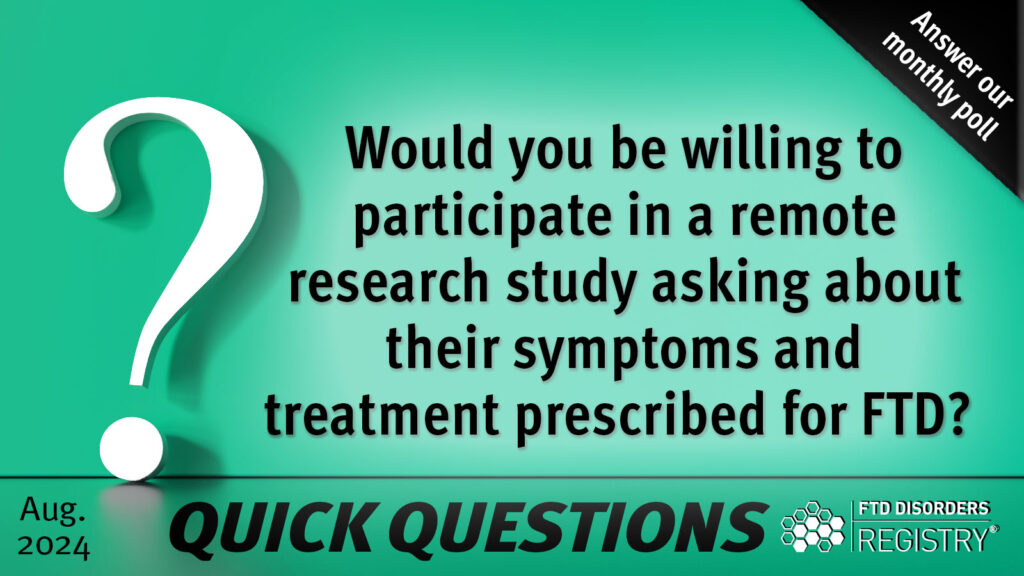
460 people answered the FTD Disorders Registry’s August Quick Question about whether they would be willing to participate in a remote research study asking about their symptoms and treatment prescribed for FTD.
460 people answered the FTD Disorders Registry’s August Quick Question about whether they would be willing to participate in a remote research study asking about their symptoms and treatment prescribed for FTD.
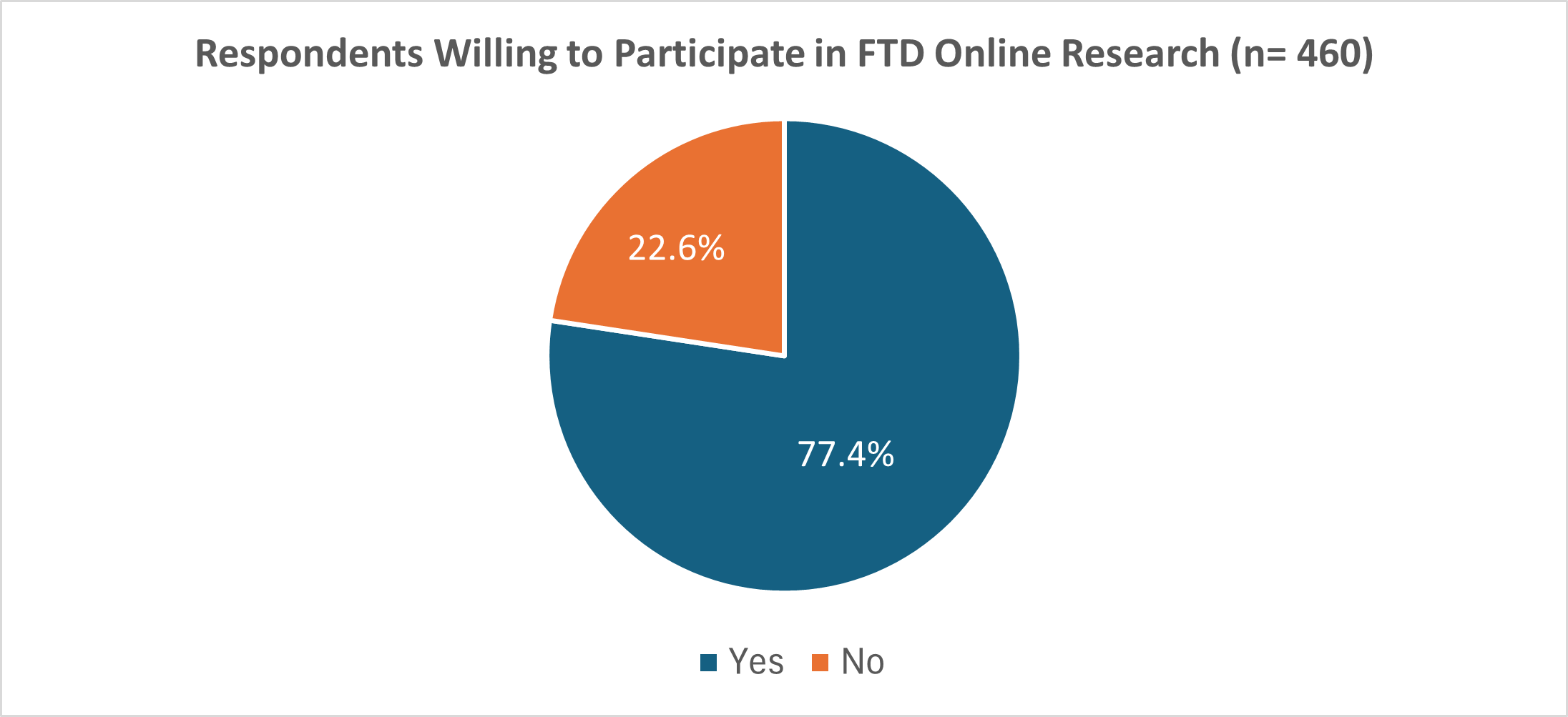
The majority of respondents (77.4%) answered that they are willing to participate in the remote research study about FTD symptoms and treatments.
The primary reasons for not wanting to participate in a remote FTD research study include not having an FTD diagnosis, FTD loved one has passed on and the FTD diagnosed person is in an advanced stage of the disease.
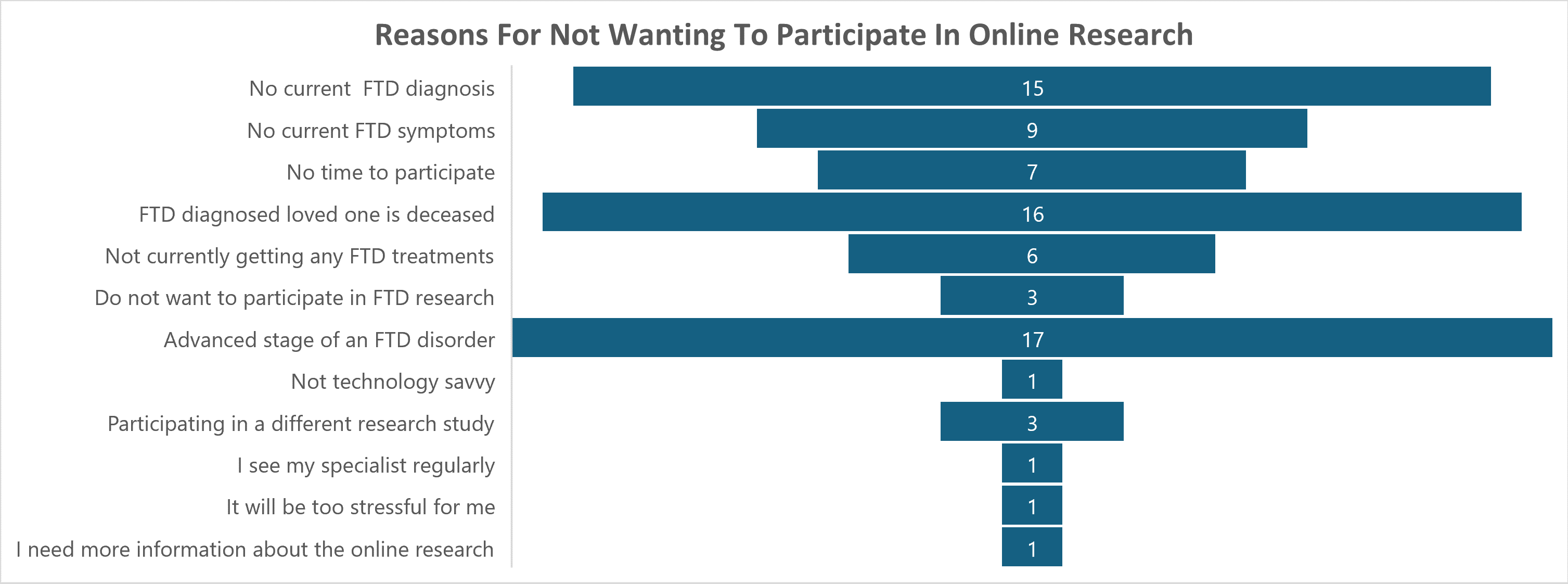
An overwhelming majority (96.8%) of the participants prefer monthly surveys.
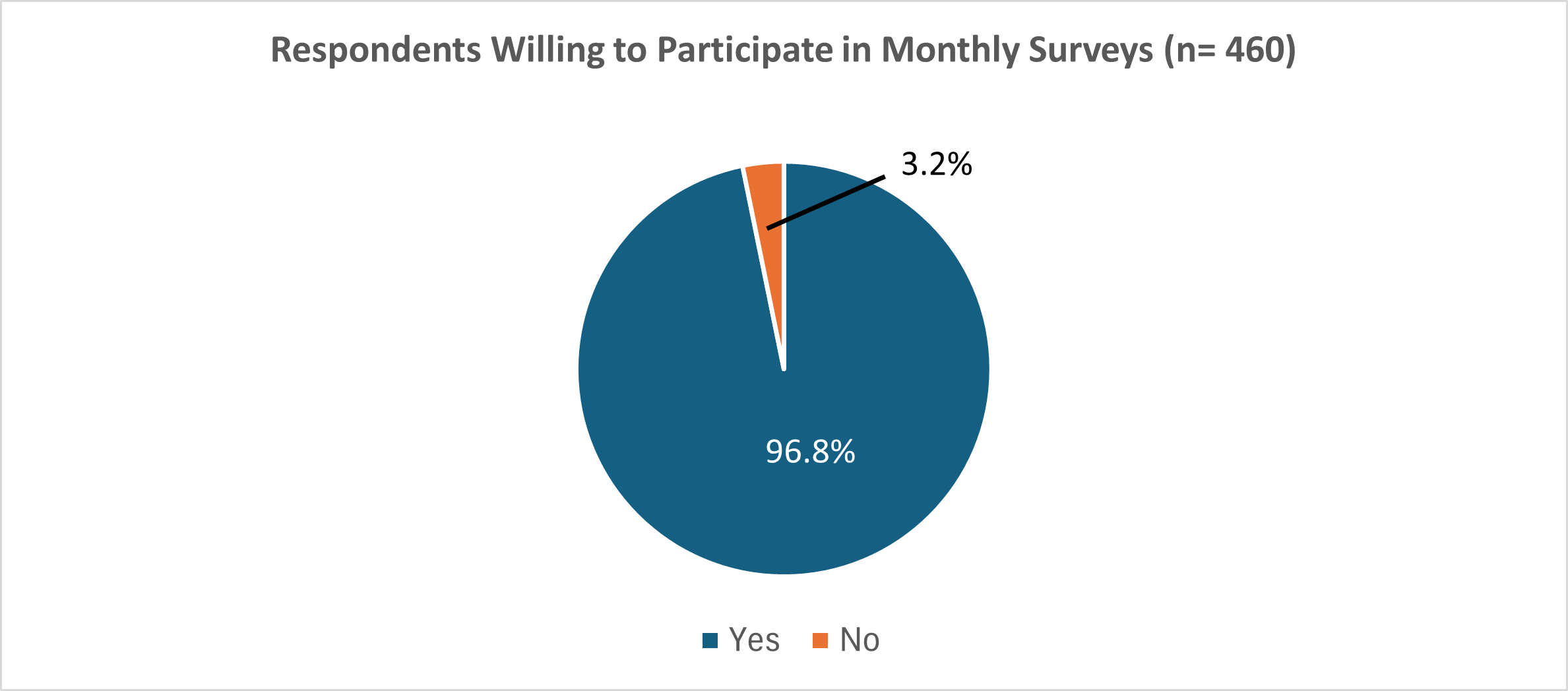
Demographics
Most (42%) of participants are spouses answering on behalf of an FTD-diagnosed person, followed by individuals diagnosed with FTD answering for themselves (23.5%).

The respondents consist of more female participants (54.6%) compared to male participants (44.3%), with a small percentage preferring not to answer.
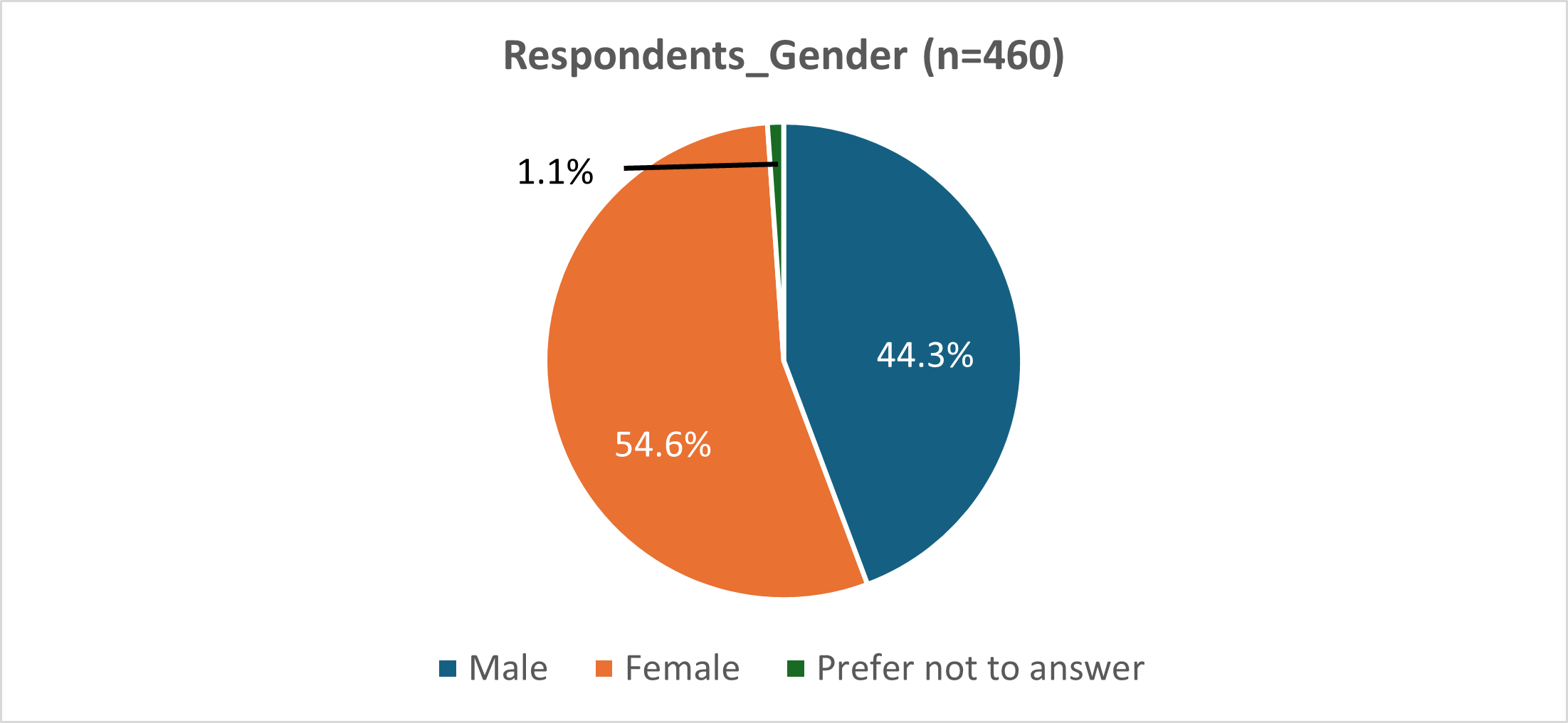
Answering the FTD Disorders Registry’s Monthly Quick Question provides crucial insights into the day-to-day experiences of people living with FTD disorders. Each response adds to the collective understanding of FTD, helping researchers gain real-world perspectives on the disease’s impact.
Quick answers can highlight trends, challenges, and unmet needs, guiding researchers toward the most relevant and impactful studies. In just a few minutes, you contribute valuable data that accelerates the search for better treatments and a cure.
Your answers may seem small, but they play a big role in advancing FTD research!
Together we can find a cure for ftd
The FTD Disorders Registry is a powerful tool in the movement to create therapies and find a cure. Together we can help change the course of the disease and put an end to FTD.
Your privacy is important! We promise to protect it. We will not share your contact information.



